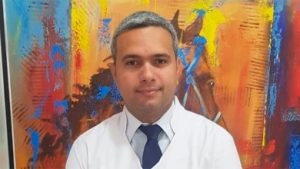
The binding relationships between resident physicians and representatives of the pharmaceutical industry are a challenge in managing conflicts of interest when prescribing medications.
Medical researcher Ricardo Elias Melgen recently published findings on the close ties between big pharma in the Dominican Republic and medical students. Melgen is a doctor in medicine from the state university (UASD) with a specialty in pediatrics and a subspecialty in child pulmonology. He is also an associate researcher at the National Center for Research in Maternal and Child Health Dr. Hugo Mendoza (Cenismi).
The investigation “Relationship of the Pharmaceutical Industry with the Resident Doctors of the Dominican Republic” highlights that pharma representatives make weekly visits to see the residents, and deliver gifts, offers of covering costs of activities and sponsorship of social events.
The study published in the Science and Health Magazine of the Technological Institute of Santo Domingo (Intec) shows that out of 77 respondents, 55.8% said they receive a pharmaceutical representative once a week.
The study revealed that 49.4% receive gifts from pharmaceutical companies at least five times a year. 48.1% said they participated in a social event sponsored by the company.
Likewise, 57.1% participated in a talk financed by a pharma company. In addition, 40.3% of the visitors paid for their registration/travel to an event at least once a year.
When measuring residents’ perception and attitude in relation to interaction with the industry, the research states that 20.8% agree that gifts/proposals influence the medicines they prescribe to their patients. 45.4% consider it appropriate to accept payment for events.
“The importance of the pharmaceutical industry is unquestionable in the development of new treatments, products and medicines to improve the quality of life and restore health, however, there is a close and delicate relationship with health professionals that can lead, from one end to the other, to conflicts of interest, in which the final victim can be the patient,” the research concludes. The research recommends that the interactions with residents in training be regulated for the public welfare.
Read more in Spanish:
Hoy
5 November 2020

